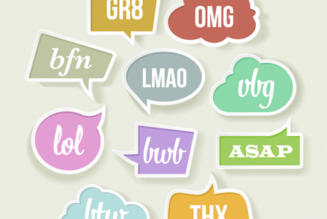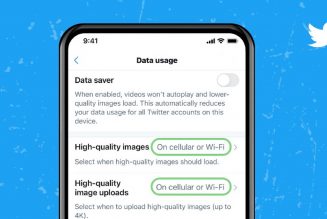In recent years, Africa’s younger generation has begun to associate farming with bare sustenance and discard it as a viable career path. Despite farming being a fundamental part of society, training and education on sustainable agriculture in school curriculums is neglected and underfunded at government level.

To unpack this further, IT News Africa’s Jenna Delport spoke to James Konde, Head of Farmer Training and App Development at the Haller Foundation in Mombasa, Kenya. Here’s what transpired:
The Haller Foundation is a UK registered charity and Kenyan NGO that was set up to educate rural farmers. How is the foundation tackling the youth’s lack of interest in agriculture?
/* custom css */
.tdi_3_dd6.td-a-rec-img{ text-align: left; }.tdi_3_dd6.td-a-rec-img img{ margin: 0 auto 0 0; }
It’s very true and unfortunate that the young energetic youths whom we perceive to be the future of the nation are now the ones who are taking very negative stands towards farming. Despite this challenge, we at Haller have a different approach of trying to discard that and we believe in “Think Big Start Small”.
So we have for the last three years been involving youths and children of ages 12- 20 in farming activities (youth farming project) at our demonstration farm aimed at building their enthusiasm and mentoring them in different career paths that are linked to agriculture as a profession.
Great impact has been achieved as during inception they were looking at farming as dirty and for low-class persons but now they are even able to carry vegetables home and do kitchen gardens in schools and at home without being forced.
We look forward to building this network among the youth’s especially involving ones from very rural marginalized populations and share same with a larger audience across the globe. Hoping this will bring revolution to the mindset of the youths towards agriculture.
The Haller Foundation recently launched a newly redesigned version of its award-winning app, Haller Farmers, to help African farmers improve their agricultural productivity. What kind of information is available through the app?
Through the Haller Farmers app, we are able to help African Farmers improve their agricultural productivity by availing to them well packaged and simplified information such as growing of local indigenous vegetables, native to their area, simple ways of identifying and controlling pests, easy and affordable solutions to soil nutrition, water management and erosion control as well as many new ideas of improving their livelihoods through use of waste and readily available materials within their surroundings. All of the techniques are environmentally friendly and available for free.
How is the redesigned app able to cater to the needs of farmers?
The newly released version of the Haller Farmers App is able to cater to the needs of the farmers by offering them quick solutions to their questions like; What? Where? Why? and How? in different aspects ranging from growing variety of crops, food, fruits and vegetables as well as the rearing of livestock not forgetting marketing and sales within the same platform.
This means there is increased contact between the farmer and experts and farmer to farmer through the noticeboard on time. With limited access to technology in the rural areas of Africa, the new version allows users to download specific agricultural content for offline use.
What is the main challenge when it comes to the dissemination of the Haller Farmers app?
The main challenge at the moment is the availability of android smartphones especially to the very grass root farmer who lives in less than a dollar per day and this farmer apparently seems to be our ultimate audience.
However we have seen mobile companies and service providers coming up with lending strategies to enable the penetration of smartphones to very small scale farmers and so far they are working out to ensure more people own smartphones – still, the challenge remains and we ask ourselves How and When will we achieve the transition.
Use of the Haller Farmers app is highly dependent on increased penetration of mobile technology across the continent as well as access to a source of renewable power. How have sustainable partnerships with companies like Mara Phones and Deciwatt unlocked the potential of smallholder farmers?
Mara Phones and Deciwatt partnered with us to make some farmers realize some of the dreams. For the past few months, there has been a big impact among the group of ambassadors whom we are doing a test run with and we see more farmers being attracted to work closely with such progressive companies.
The phones help them train others on the Haller Farmers app and the lights are able to recharge the phones; more importantly provide a clean, healthy and cheap source of light for children to do their homework after school.
Staff writer
/* custom css */
.tdi_4_d1d.td-a-rec-img{ text-align: left; }.tdi_4_d1d.td-a-rec-img img{ margin: 0 auto 0 0; }









